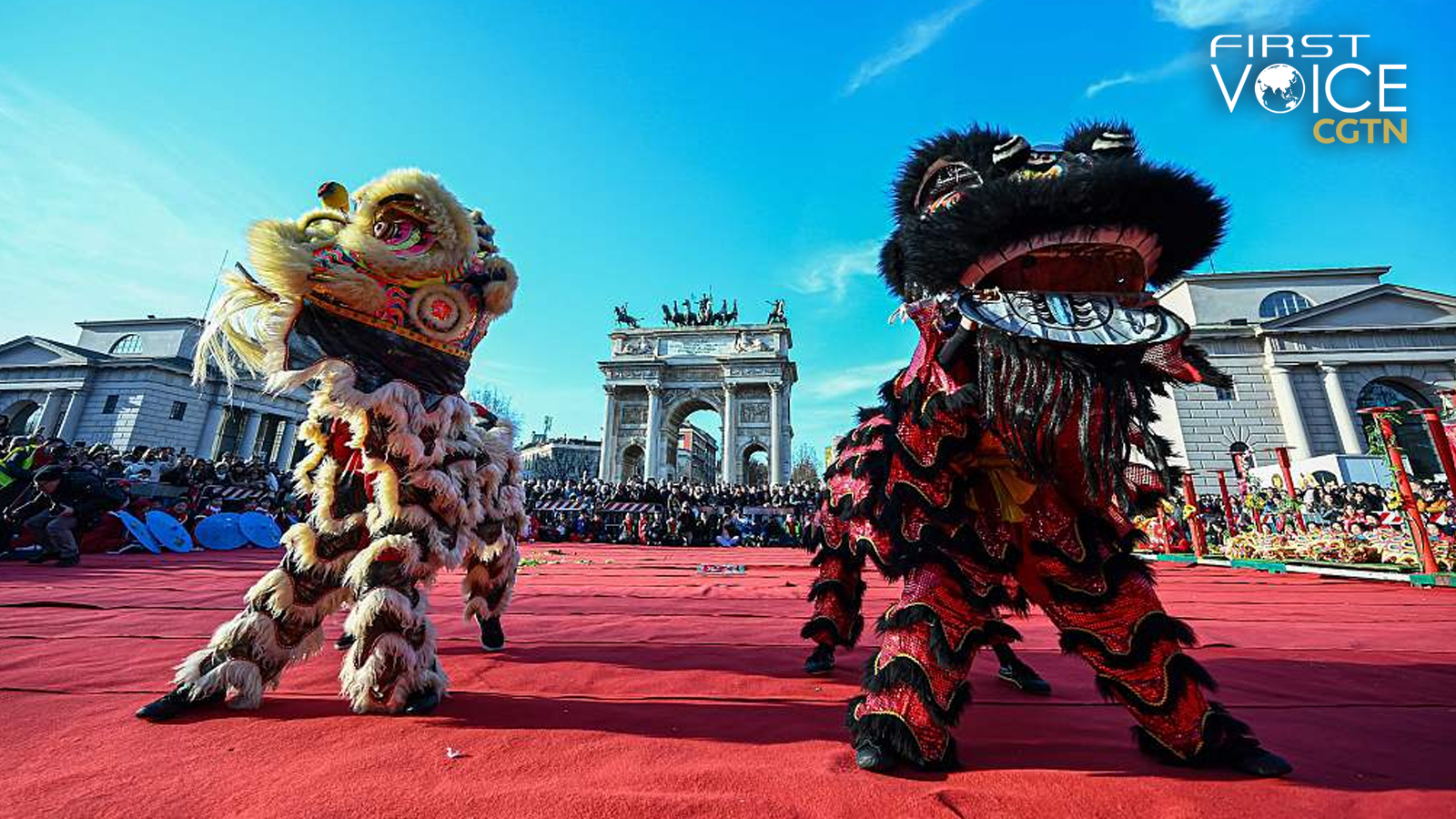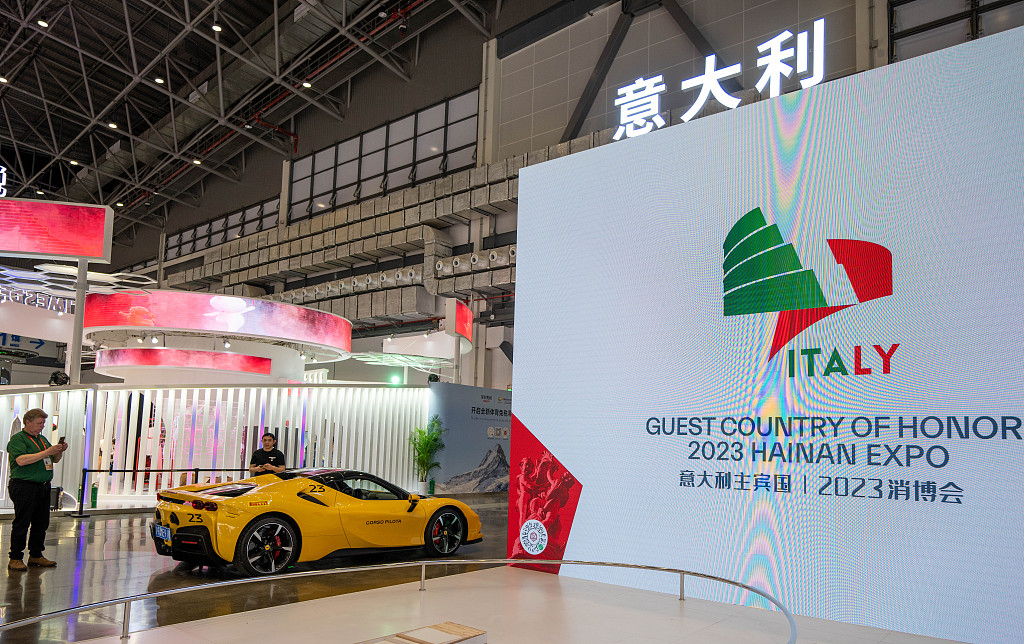
Editor's note: CGTN's First Voice provides instant commentary on breaking stories. The column clarifies emerging issues and better defines the news agenda, offering a Chinese perspective on the latest global events. This First Voice article is written by CGTN Special Commentator, Matteo Giovannini, a finance professional at the Industrial and Commercial Bank of China in Beijing and a member of the China Task Force at the Italian Ministry of Economic Development. The article reflects the author's views, and not necessarily those of CGTN.
In the history of bilateral relations, the link between China and Italy is arguably one of the oldest as it dates back to ancient China and ancient Rome. Formal diplomatic ties were established on November 6, 1970, when Italy recognized the People's Republic of China, breaking formal relations with China's Taiwan region and encouraging other European countries to contemplate a similar move.
The affinity between the two nations was showcased in 2015 when Italy became a founding member of China-led multilateral institution, the Asian Infrastructure Investment Bank.
A more recent milestone that strengthened the relationship between the two countries happened at the end of March 2019 when Italy officially became the first Group of Seven nation to sign an agreement to join and support the infrastructure plan, known as the Belt and Road Initiative (BRI).
The memorandum of understanding (MoU) between Italy and China on cooperation within the framework of the BRI states that it "will remain valid for five years and will be automatically extended for subsequent five-year periods and so forth, unless terminated by either Party by giving the other Party a written notice at least three months in advance."
Considering the proximity of expiration of the MoU, the far-right government in Rome will have to decide whether or not to renew the agreement. Therefore, 2023 is set to be crucial for Italy's China policy.
It clearly remains in the interest of Italy, a country whose largest trading partner in Asia is China, to maintain a stable partnership with the East Asian nation that has now reopened its borders to the rest of world and that is set to regain its role as the engine of the world economy. It is also in China's interest to safeguard its centrality in the global economic arena after it became the EU's largest trading partner, replacing the U.S. during the pandemic years.
There are key strategic and economic reasons that keep China and Italy bound together. Italy's economy, which is mainly export-driven, has a vital need to access the huge Chinese market. At the same time, Italy's central geographical position in the Mediterranean Sea is considered strategic by China as a means to enter the large European market.

The booth of Italy at the third China International Consumer Products Expo, in Haikou, capital of south China's Hainan Province, April 8, 2023. /CFP
The booth of Italy at the third China International Consumer Products Expo, in Haikou, capital of south China's Hainan Province, April 8, 2023. /CFP
Many observers may have noticed that in the last three months, major leaders from France, Spain and the European Union have traveled to China while Italian Prime Minister Giorgia Meloni, who also received formal invitation to Beijing after meeting Chinese President Xi Jinping at the 17th Group of 20 (G20) Summit in Bali, Indonesia, in November 2022, has yet to pay a visit.
However, there are more political motivations behind the hesitancy demonstrated by the current Italian administration. This can be ascribed to the pressure impressed by the United States, which is unable to accept that the international context has changed considerably in the last few years and that a multilateral global order is looming on the horizon.
As stated by the new Chinese Ambassador to Italy Jia Guide, trade between Italy and China in the last three years "has set new records, touching 73.55 billion euros in 2022 and putting Rome in the forefront at the European level among countries that have trade relations with China."
In addition, the recent Regional Economic Outlook report released by the International Monetary Fund shows that Asia will be the most dynamic of the world's major regions in 2023, growing 4.6 percent and contributing to around 70 percent of global growth, with China and India as key drivers of this expansion.
The Italian business community has already expressed a loud and clear intent to maintain a stable relationship with China as the accessibility to the world's largest consumer market is indispensable to the EU's third-largest economy, where a large part of its annual GDP comes from exports.
An extremely complex geopolitical situation has already made Italian companies lose the exposure to the Russian market, due to the sanctions inflicted by Western nations as a result of the conflict in Ukraine.
The possibility to lose access to the Chinese market, if Italy decides to walk away from the MoU, would translate into a powerful political signal with the risk of a possible reaction from China, and would represent a self-inflicted punishment to the Italian industry at a time of high inflation and low economic growth.
The decision that the Italian administration is set to make before Christmas time represents a sliding doors moment that could alter the trajectory of future events with consequences for the relations between two traditionally friendly nations and for the destiny of generations to come.
(If you want to contribute and have specific expertise, please contact us at opinions@cgtn.com. Follow @thouse_opinions on Twitter to discover the latest commentaries in the CGTN Opinion Section.)